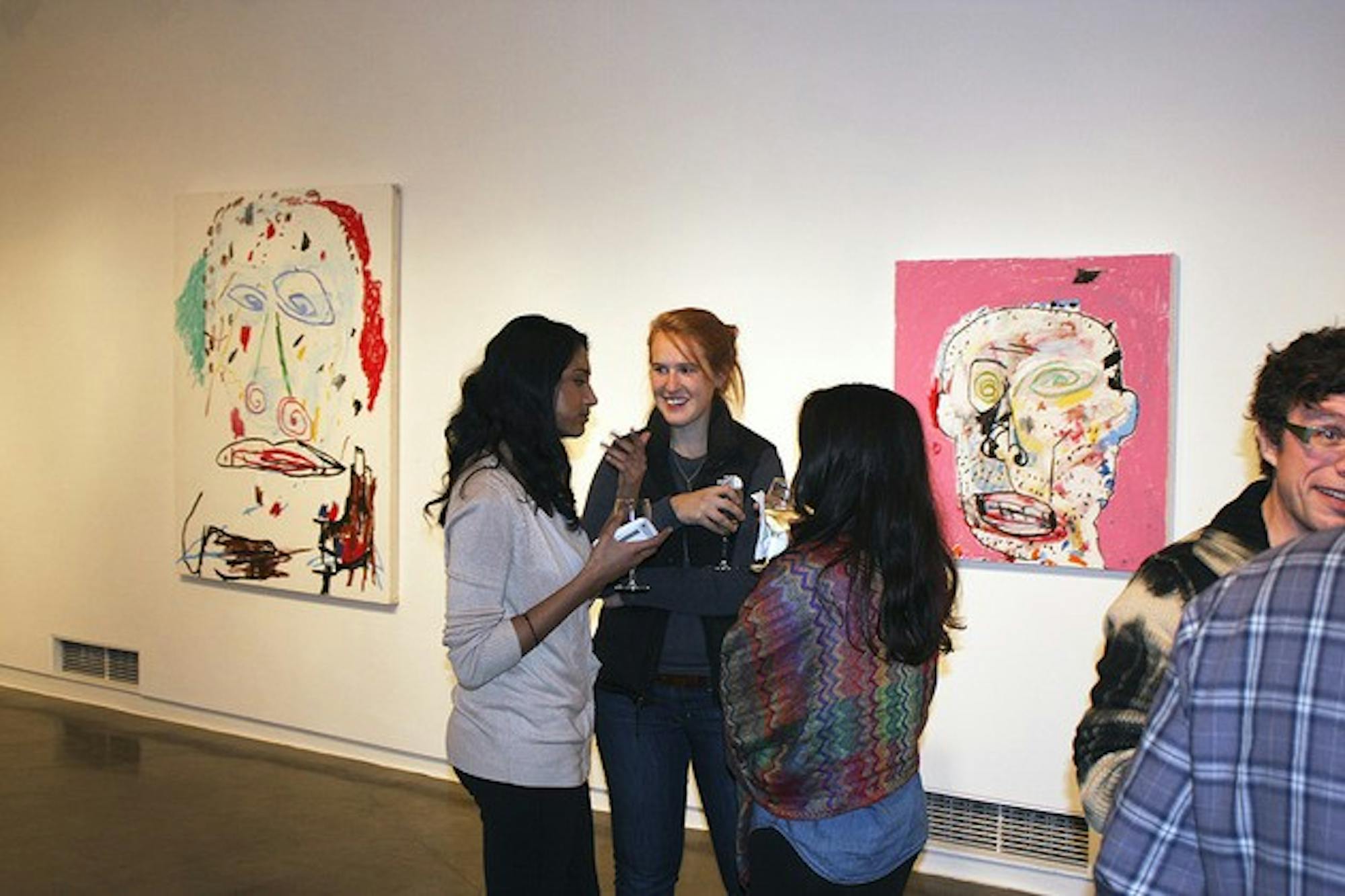"As I work and as I begin to react formally to what's happening on the canvas, the paintings and drawings will begin to move toward something that might be familiar, and then I'll try to follow that sometimes it works, and sometimes it doesn't," Riley said. "I'm not starting any of them with really anyone in mind."
Riley's collection includes an abstract portrait of his wife, Katherine, as well as three works inspired by his son, Alexander. His inspiration comes from other contemporary artists in addition to everyday life, he said.
"It's really allowing the things that are happening in your life to penetrate you," Riley said.
Riley graduated from Dartmouth before receiving his Master of Fine Arts degree from the Yale University School of Art. In the years since his departure from the College, he has received 10 significant awards and has been featured in over 40 exhibitions, which have included both group exhibitions and individual projects. Since 2001, he has worked in the College's studio art department, and this is his first solo exhibition at the College.
The earliest works in "Portable Vision" are from 2011, with his drawings generally being earlier than the paintings. Riley considers the collection a departure from the technique seen in his earlier works, especially in the use of materials.
"There's a lot of formal issues that I'm dealing with issues of drawing and painting, color and drawing but it's trying to deal with those formal issues in a way that's hopefully original," Riley said.
His works from previous years were much more minimalistic and geometric than those in the "Portable Vision" collection, utilizing less vibrant colors and a more contained style. Much of his work had been inspired by star charts and constellations, themes that he explored during his yearlong John Simon Guggenheim fellowship in 2008, he said. The past two years, however, mark a drastic change in his design and attitude toward the pieces.
"In my former work, I used my work as a refuge away from life, a place I would go to take me away from life and deal with formal issues," Riley said.
Now, his artwork allows the present as its "happening to enter the paintings," according to Riley.
For years, Riley had employed a meticulous technique of drawing pencil grids, painting base layers and then overlaying multiple coats of paint with miniscule brushstrokes in order to create the effect he desired. As his personal life started to change acclimating to being a new father and recovering from a surgery the methodical intensity of his technique began creating tension with his personality outside of the studio.
After a three-month break from painting, he was suddenly inspired by some of his son's drawings on the table and began experimenting with crayons.
"I saw an opening, a place where I could move in the work," Riley said in a lecture before the opening.
He drew for eight consecutive months without painting and created close to 1,000 drawings. Riley noted he was "refiguring a language" with which he crafted his artwork.
After finishing the drawings, he began experimenting with water-soluble wax pastels, slowly working gesso a white base paint into his pieces.
"That was a clear signal that I was getting ready to paint again," he said.
Last night's gallery opening was a success and inspired a discussion on Riley's shift in style and subject matter.
"I think it's the natural development that artists go through of finding their own voice," studio art professor and department chair Colleen Randall said.
In addition to studio art professors, students were also in attendance at the gallery opening.
"It's interesting to see him have such a courageous kind of jump in his artwork," studio art intern Stuart Lantry '12 said. "As an artist and a painter, it's easy to get attached to the work that you're making, and I feel that it's really hard to change as much and as drastically as he did in as short a time."
Although the paintings come across as gestural and intuitive, Riley made clear during his lecture how his process still consists of multiple layers of "under and over painting" to achieve what he feels is a complete work.
"Matisse talked about how really great work doesn't show how difficult it is," Randall said. "[Riley] is giving you pleasure and making it look easier than it really is."
"Portable Vision" will be open until Nov. 18 in the Jaffe-Friede Gallery.




